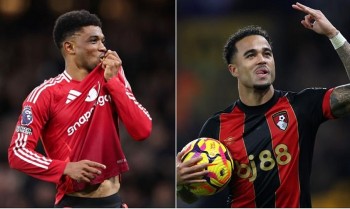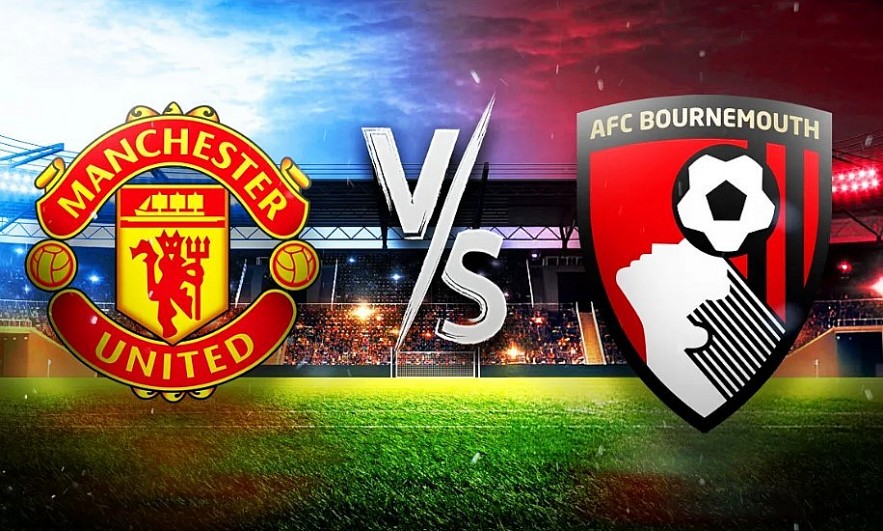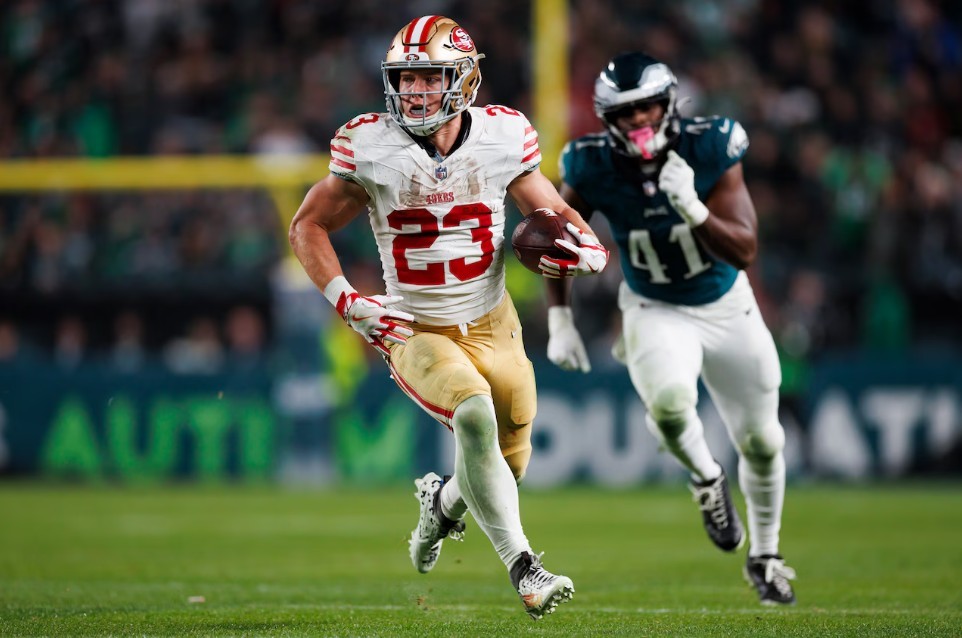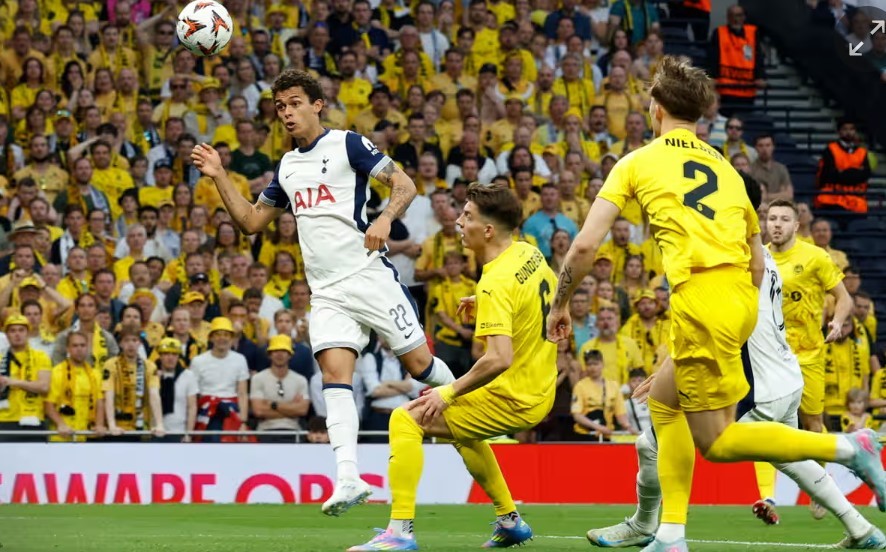Why Is Man Utd vs Bournemouth Not on TV in the UK and How to Watch the Match
 Where to Watch Man United vs. Bournemouth Live Stream, Websites (URLs), and TV Channels Where to Watch Man United vs. Bournemouth Live Stream, Websites (URLs), and TV Channels |
 |
| Manchester United vs. Bournemouth |
The "3 PM Blackout" Rule in the UK
The primary reason Manchester United vs Bournemouth won’t be shown live on UK television lies in the longstanding “3 PM blackout” rule. This regulation prohibits live broadcasts of football matches in England between 2:45 PM and 5:15 PM on Saturdays. Introduced in the 1960s, the blackout was designed to protect attendance at lower-league matches by encouraging fans to watch live games in person rather than staying home to watch on TV.
This rule remains a significant part of the broadcasting landscape in English football, even though modern viewing habits and technology have changed dramatically since its inception. For matches scheduled during this window, no matter how high-profile or eagerly anticipated, live broadcasts are not permitted in the UK.
Unfortunately for fans, the Manchester United vs Bournemouth fixture falls squarely into this restricted time slot, meaning it cannot be shown on television.
Why the 3 PM Blackout Remains Controversial
The 3 PM blackout is often a subject of heated debate among fans and football stakeholders. On the one hand, proponents argue that it upholds the spirit of English football by preserving matchday attendance and supporting lower-league teams. They believe that removing the blackout could lead to fewer fans attending live games, potentially threatening the financial viability of smaller clubs.
On the other hand, critics question the relevance of the blackout in today’s world. With widespread availability of international streams, illegal broadcasts, and live social media updates, the blackout seems increasingly outdated. Fans in countries outside the UK can easily watch Premier League matches live, while British fans are left without access. This disparity often frustrates supporters, particularly for matches involving big teams like Manchester United, which have a global following.
The financial implications are also a point of contention. While clubs benefit from lucrative broadcasting deals, the inability to show all matches live may limit their potential revenue. Some fans argue that allowing selective high-profile games to bypass the blackout could satisfy both broadcasters and viewers while preserving smaller matches.
Other Reasons for Non-Broadcasting
Beyond the 3 PM blackout, another factor is the limited number of matches that broadcasters can air each weekend. In the UK, broadcasters like Sky Sports and BT Sport have a set number of matches they can show live due to their agreements with the Premier League. They prioritize certain games based on fan demand, league standings, and other factors.
Manchester United vs Bournemouth, while undoubtedly an exciting fixture, might not have been chosen for live broadcast if other matches this weekend were deemed more appealing to a broader audience. The selection process inevitably leaves some fans disappointed.
How Fans Can Watch or Follow the Game
Despite the absence of live TV coverage, there are still several ways for fans to stay connected with the match. Here’s how:
1. Attend the Match in Person
If you’re fortunate enough to secure a ticket, watching the game live at Old Trafford offers an unbeatable experience. The energy, atmosphere, and thrill of being part of the crowd are unmatched. However, last-minute availability might be limited, so planning ahead is crucial.
2. Live Radio Broadcast
Many matches that aren’t televised live are still available via radio commentary. BBC Radio 5 Live or other local stations often provide live coverage and analysis, ensuring fans can keep up with the action even without visuals.
3. Club’s Official Channels
Manchester United and Bournemouth both operate official channels that provide in-depth match coverage. While live streaming of the match may not be available, highlights, interviews, and post-match analysis can be accessed on platforms like MUTV or Bournemouth’s official website. These channels are great for staying updated after the final whistle.
4. International Broadcasts
Fans outside the UK are not subject to the 3 PM blackout and can watch the game on international channels such as NBC Sports, DAZN, or beIN Sports. UK fans may consider using VPNs to access these legitimate streams. While this approach is technically feasible, it’s essential to understand the legal and ethical considerations before pursuing this option.
5. Social Media and Live Updates
Social media platforms like Twitter, Instagram, and Facebook provide real-time updates, highlights, and fan reactions during the match. Additionally, sports apps and websites like BBC Sport, Sky Sports, and the Premier League’s official app offer minute-by-minute commentary and live stats.
6. Pub Screenings
While UK broadcasters cannot show the match live, some local pubs may air international feeds of the game. This is a popular option for fans who want to enjoy the atmosphere of watching the match in a group setting.
The Future of Football Broadcasting in the UKThe situation with Manchester United vs Bournemouth highlights the ongoing challenges of football broadcasting in the UK. Many fans argue that the 3 PM blackout, while rooted in tradition, feels increasingly out of place in the digital age. Proposals for reform include introducing flexibility for high-demand matches or allowing fans to purchase pay-per-view access for specific games. Streaming services like Amazon Prime Video, which already broadcasts some Premier League matches, could play a key role in shaping the future of football viewing. Balancing the needs of lower-league clubs, broadcasters, and fans will be crucial to finding a sustainable solution. |
Conclusion
The absence of Manchester United vs Bournemouth on UK TV is a disappointment for many fans, but it’s rooted in the longstanding traditions and regulations of English football. While the 3 PM blackout aims to protect the wider football ecosystem, its relevance is increasingly questioned in today’s interconnected world.
For fans determined to follow the match, alternatives like live radio, social media updates, or even international streams can help bridge the gap. As technology and fan expectations evolve, so too must the approach to football broadcasting in the UK, ensuring that the game remains accessible to its passionate supporters.


























